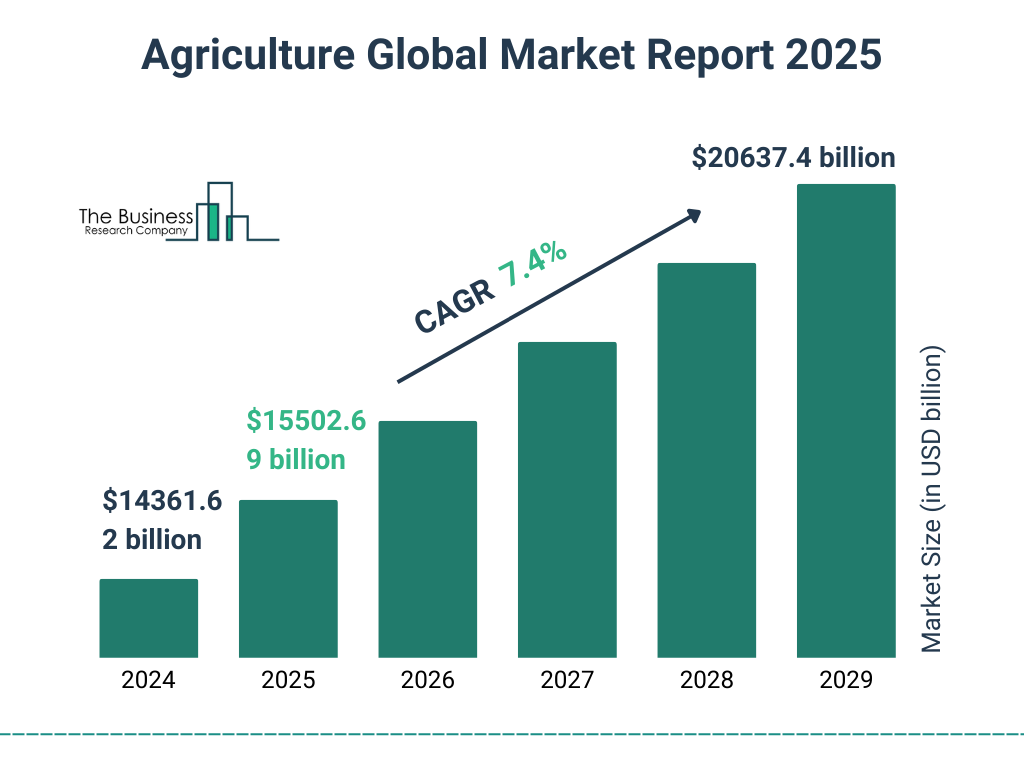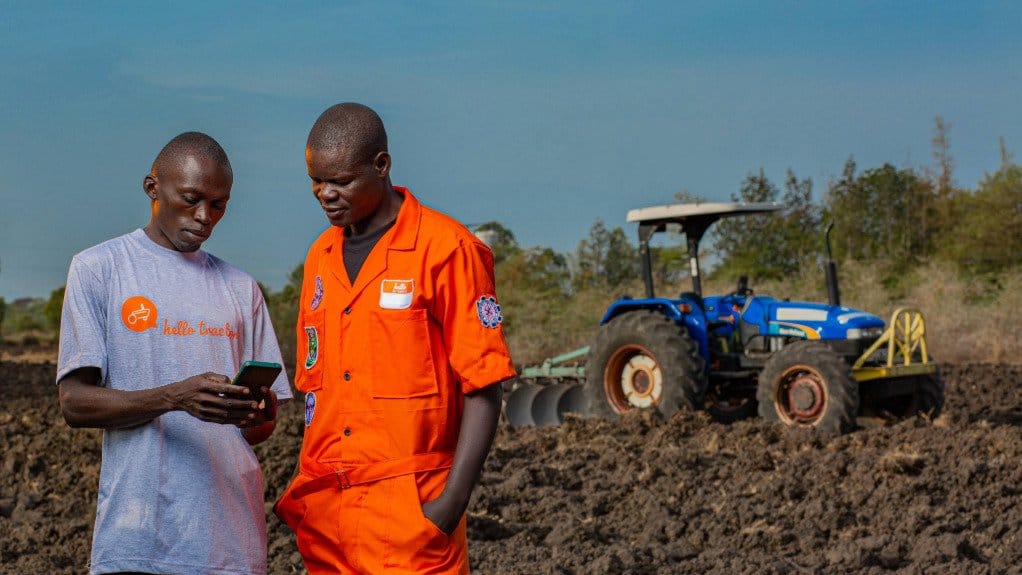In Summary
- The African agricultural sector is projected to have a gross production value of US$189.07 billion by the end of 2025.
- The import value of agricultural products in Africa is expected to reach US$40.8 billion, and the export value of US$20.5 billion by the end of 2025. The continent’s food import bill is projected to increase significantly, reaching US$110 billion.
- The continent’s agribusiness sector is projected to maintain exponential growth, reaching a value of $1 trillion within the next couple of years.
Deep dive!!
Africa’s agricultural sector is not only foundational but increasingly strategic, contributing over 20% of the continent’s total GDP and employing nearly half of its workforce. Amid global climate shifts, food insecurity, and economic recalibration post-COVID-19, agriculture has emerged as Africa’s most critical lever for sustainable development, rural empowerment, and foreign exchange stability.
According to the African Development Bank (AfDB), the agricultural economy across sub-Saharan Africa is projected to reach $1 trillion by 2030, spurred by growing demand for food, infrastructure expansion, and a wave of digital innovation in agri-tech. Governments across the continent are investing billions of dollars into irrigation systems, mechanization, agri-fintech, and climate-smart farming, with over 15 countries allocating more than 10% of their national budgets to agriculture as of 2024.
The gross production value in the agricultural sector is forecast to be US$189.07 billion in 2025, with an annual growth rate of 0.63% (CAGR 2025-2029), according to Statista. After comprehensive research, PricewaterhouseCoopers (PwC) revealed in its 2025 report that the import value is projected to be US$40.8 billion, with a CAGR of 2.85% (2025-2029), and the export value is expected to reach US$20.5 billion, with a CAGR of 2.35% (2025-2029). Africa’s food import bill is projected to rise to US$110 billion, and the agribusiness sector is expected to reach $1 trillion by the end of 2025.
Countries like Nigeria, Ethiopia, Egypt, and Ghana are not only maximizing staple food production but also aggressively positioning themselves in the carbon economy, leveraging agroforestry and regenerative farming to tap into voluntary carbon markets. Meanwhile, cooperative farming models, private placements in agribusiness, and public-private partnerships are rewriting the story of Africa’s agro-industrialization.
This article ranks the Top 10 African countries with the largest agricultural sectors in 2025, examining the scale of their GDP contribution, key commodities, flagship programs, and the projected economic impact of these investments. From cocoa dominance in Côte d’Ivoire to irrigation-led grain expansion in Egypt, these countries are not just feeding Africa — they’re shaping its economic future.

Here are the Top 10 African Countries with the Largest Agricultural Sectors in 2025. Check them out!
10. Rwanda
- Agricultural GDP Contribution: Significant, with strong government support
- Key Crops: Coffee, tea
- Notable Projects: Strategic Plan for Agriculture Transformation (PSTA)
- Economic Impact: With 10% of the national budget allocated to agriculture, Rwanda continues to strengthen rural employment and export revenues through high-value crops.
9. Angola
- Agricultural GDP Contribution: Growing
- Key Crops: Maize, cassava, beans
- Notable Projects: FADA and PNIA investments totaling $3 billion in 2024.
- Economic Impact: Achieved 8% agricultural output growth and reduced food imports by 20%, supporting Angola’s economic diversification away from oil.
8. Uganda
- Agricultural GDP Contribution: ~24.1%
- Key Crops: Coffee, bananas, maize, beans, sugarcane
- Notable Projects/Companies: NOPP, ACDP, and UCDA.
- Economic Impact: Coffee exports alone generated $845 million in 2024, with growth fueled by commercialization and export-oriented policies.
7. Ghana
- Agricultural GDP Contribution: Notable
- Key Crops: Maize, rice, cocoa
- Notable Projects: Planting for Food and Jobs (PFJ) — $1.3 billion invested in 2024.
- Economic Impact: Created 1.5 million jobs and cut food imports by 30%, bolstering national food security.
6. Kenya
- Agricultural GDP Contribution: Approx. 30% of export revenue
- Key Crops: Tea, flowers, coffee
- Notable Projects: $800 million investment in 2024 for irrigation and infrastructure
- Economic Impact: Remains a leader in tea and flower exports, sustaining livelihoods and foreign earnings.
5. Morocco
- Agricultural GDP Contribution: Significant
- Key Crops: Fruits, vegetables, olive oil
- Notable Projects: Plan Maroc Vert — over $10 billion invested since 2020.
- Economic Impact: Boosted output by 40%, driving exports and rural development through sustainable irrigation.
4. Egypt
- Agricultural GDP Contribution: Substantial
- Key Crops: Wheat, rice, cotton
- Notable Projects: $6 billion desert agriculture expansion project.
- Economic Impact: Egypt aims for 75% wheat self-sufficiency by 2030, reducing imports and enhancing food resilience.
3. Ethiopia
- Agricultural GDP Contribution: High; a primary sector
- Key Crops: Coffee, wheat, maize
- Notable Projects: Agricultural Transformation Agency (ATA) — $5.5 billion irrigation program.
- Economic Impact: Still Africa’s largest coffee exporter, with over 1.2 million rural jobs created through expanded irrigation.
2. Côte d’Ivoire
- Agricultural GDP Contribution: ~45%
- Key Crops: Cocoa, rice, bananas
- Notable Projects: $2 billion investment in cocoa expansion and diversification.
- Economic Impact: World’s largest cocoa exporter, with agriculture underpinning national export revenue and rural employment.
1. Nigeria
- Agricultural GDP Contribution: ~23.4%
- Key Crops: Cassava, maize, rice, millet, yams, cocoa
- Notable Projects/Companies: AFEX Commodities Exchange, ThriveAgric, and Anchor Borrowers’ Program.
- Economic Impact: Agriculture employs 38% of the national workforce. Over 2 million jobs created in 2023–2024 alone. As Africa’s most populous nation, Nigeria leads in agricultural innovation, climate-smart farming, and investment volume.



